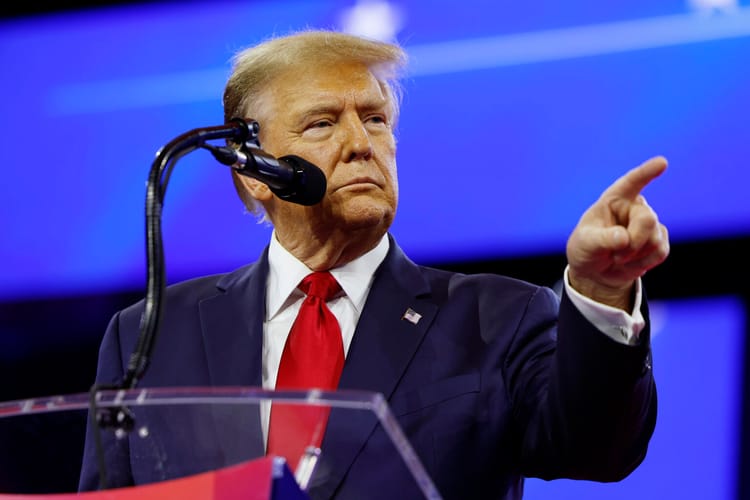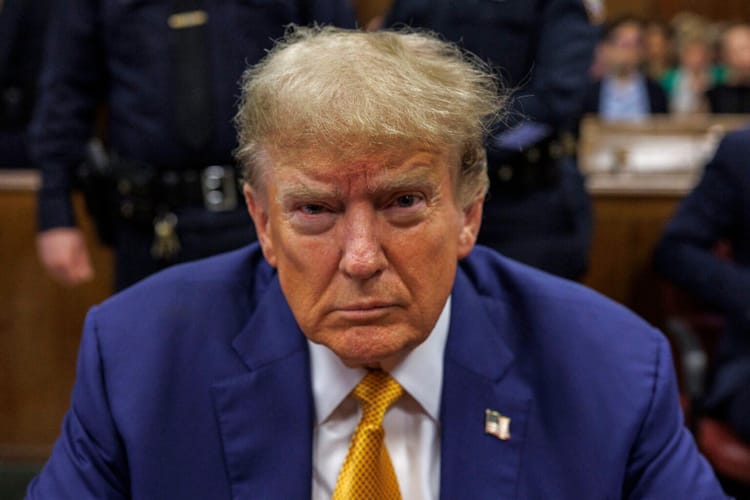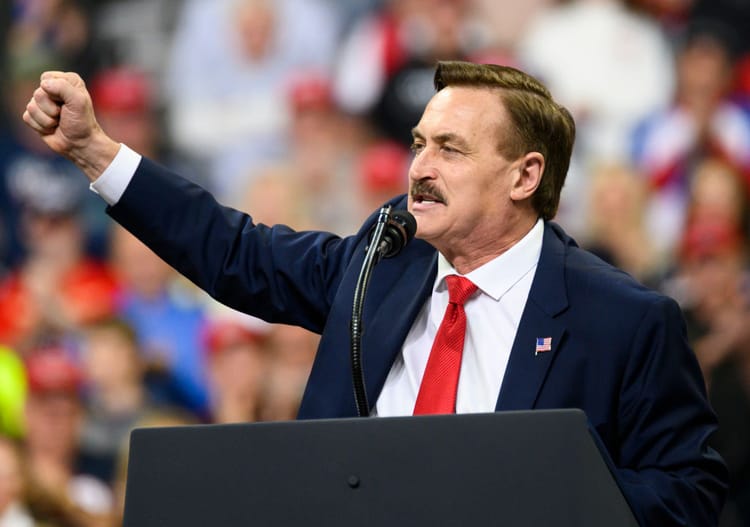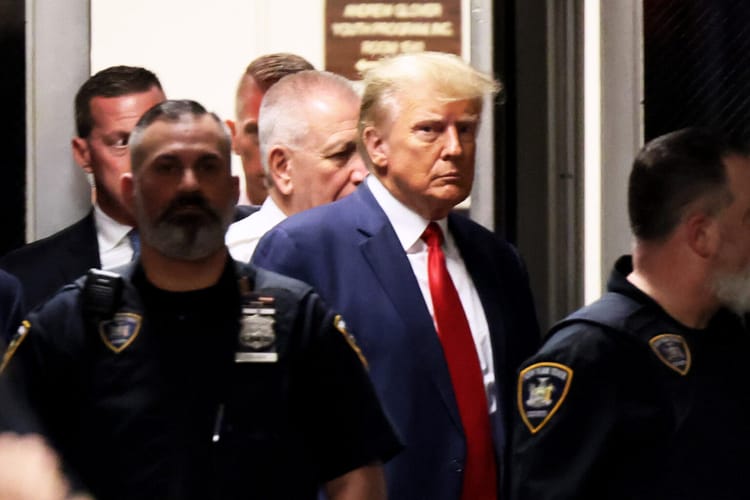Trump makes one last presidential immunity argument to the U.S. Supreme Court

By Jacob Fischler, Minnesota Reformer
Hours after Donald Trump sat in a New York courtroom and became the first former president in U.S. history to be a defendant in a criminal trial Monday, his attorneys filed a brief with the U.S. Supreme Court renewing his claim of absolute presidential immunity in another criminal case against him.
In a reply brief responding to Justice Department special counsel Jack Smith’s argument last week that former presidents should not be immune from criminal prosecution, Trump’s attorneys, led by D. John Sauer of St. Louis, repeated their claim that the framers of the Constitution intended presidents to be immune from prosecution unless they were first impeached and removed from office.
Smith argued last week that because impeachment was inherently political, former presidents must be legally accountable under a separate, apolitical process in courts. Calling Trump’s argument “a radical departure from democracy,” Smith said the absolute immunity standard would place the president above the law.
Impeachment was insufficient on its own, Smith said, because a president may escape conviction in the U.S. Senate simply because of the partisan makeup of that chamber.
But Trump’s attorneys said Monday that Smith’s argument missed the point of impeachment as a check and balance on executive power. The process is intended to be political, and difficult to achieve, they wrote.
“That is the point,” they wrote. “The Framers required a nationwide political consensus — reflected in a two-thirds vote of the Senate — before authorizing the potentially Republic-shattering act of prosecuting a President for his official acts.”
The Supreme Court case is part of a pretrial effort by Trump’s attorneys to dismiss a federal criminal case accusing him of pressuring state officials, the Justice Department and then-Vice President Mike Pence to overturn the 2020 election results, then allowing a mob of supporters to storm the U.S. Capitol.
Trump, who is again the presumptive Republican nominee for president, has claimed “absolute immunity” from prosecution for his role, saying it was part of his official duties to guard against election fraud.
Trump and his allies brought dozens of suits alleging election fraud, but presented no evidence that fraud had virtually any impact on the 2020 results.
Trump won acquittal in a 2021 Senate trial for the same actions he’s accused of in the underlying federal criminal case when only seven of the 50 GOP senators at the time voted with all Democrats for conviction. Two-thirds of the Senate must vote to impeach.
‘Malfeasance may go unpunished’
The framers of the Constitution wanted a strong executive and were willing to trade some criminal accountability of the president to gain it, Trump’s attorneys wrote Monday. The system of impeachment was part of that goal, they said.
“When the Framers erected the formidable hurdle of impeachment and conviction, they assumed the risk that some Presidential misfeasance might go unpunished,” they wrote.
Presidents are subject to common prosecution for private acts, Trump’s attorneys wrote, but can only be prosecuted for official acts through impeachment.
Trump has long contended his actions on and leading up to Jan. 6, 2021, seeking to block the certification of his election loss in November 2020 should be considered official acts.
Trump’s legal team also said Monday that federal criminal courts, with judges appointed and confirmed by the elected branches of government, were not apolitical alternatives to impeachment, as Smith suggested.
They referred to three other criminal charges the former president faces, which they said were “hyper-politicized.”
“In light of not one, but four, hyper-politicized prosecutions pending against President Trump — in addition to politically motivated civil cases — this argument cannot be taken seriously,” they wrote.
The brief came on the first day of the first criminal case against Trump to go to trial. That case, in New York state, alleges Trump falsified business records to hide hush money payments made to an adult film star during his first run for the White House in 2016.
He is also accused in Georgia state court of conspiring to overturn the 2020 election results in that state.
And a federal grand jury in South Florida indicted him for mishandling and storing in unsecured areas classified documents from his time in office.
Trump has sought to employ the criminal allegations to his political advantage, using them to reinforce his message that he is being targeted by a corrupt system.
Oral arguments soon
The Trump team’s reply brief was the last from either party before oral arguments, scheduled for April 25.
Trump will not be at the Supreme Court for the arguments, as he will be expected at his trial in New York. Judge Juan Merchan, who is overseeing that case, denied Trump’s requested absence that day to attend the Supreme Court hearing, according to reports.
The case arrived at the Supreme Court after the trial judge in the case, Tanya Chutkan, a federal judge for the District of Columbia, in December rejected Trump’s motion to dismiss the charges under the presidential immunity argument.
Trump appealed that ruling, but a unanimous federal appeals court upheld Chutkan’s decision in February.
The trial has been on hold while the appeal on the immunity claim is pending.
Minnesota Reformer is part of States Newsroom, a nonprofit news network supported by grants and a coalition of donors as a 501c(3) public charity. Minnesota Reformer maintains editorial independence. Contact Editor J. Patrick Coolican for questions: info@minnesotareformer.com. Follow Minnesota Reformer on Facebook and Twitter.





Member discussion